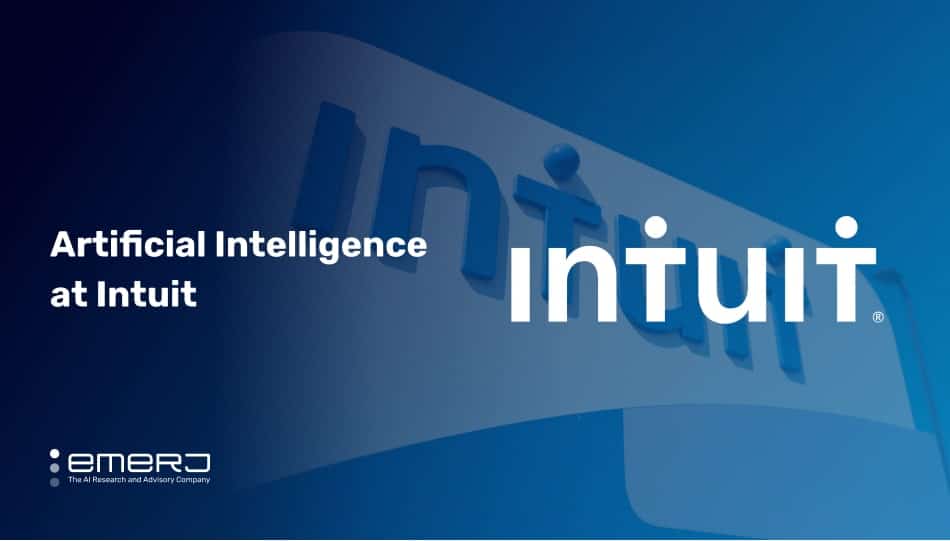Intuit, the financial software powerhouse behind popular tools like TurboTax and QuickBooks, acquired Credit Karma in 2020 for approximately $1.7 billion. Intuit’s mission is to power prosperity globally by offering innovative solutions that help individuals and small businesses manage their finances effectively.
Operating across the United States, Canada, and the United Kingdom, Intuit reported over $1 billion in revenue for Credit Karma in 2019, a 20% increase from the previous year. With over 100 million members, Credit Karma, as a subsidiary of Intuit, provides users with access to personalized financial recommendations, free credit scores, and credit reports.
Through the integration of AI technology, Credit Karma continues to empower users to make smarter financial decisions, aligning with Intuit’s broader vision of enabling financial health and success for its customers.
This article examines two AI use cases at Intuit that speak to the close relationship between the advanced technologies company’s core business goals:
- Personalized financial recommendations: Analyzing user financial data with natural language processing to suggest tailored credit products like loans and credit cards to improve decision-making.
- AI-powered credit monitoring and alerts: Leveraging machine learning to monitor activity in user credit reports, sending real-time alerts to help users maintain healthy credit and prevent fraud.
Use-Case #1: AI-Driven Personalized Financial Recommendations
Credit Karma’s members often need help to make informed financial decisions due to the overwhelming amount of information and options available in the market. From selecting the right credit card to refinancing loans, users need a reliable, personalized guide to navigate the complex landscape of personal finance.
The goal is to make complex financial decisions more accessible and to drive long-term financial health for users. Credit Karma reported revenues of $485 million in July 2024, a 14% increase from the previous quarter, which was driven by strength in auto insurance, credit cards, personal loans, and Credit Karma Money.
According to publicly available information both from Credit Karma and verified by outside sourcing, AI is being deployed at Credit Karma to address this problem by analyzing individual financial behaviors and providing targeted recommendations. To provide tailored recommendations, Credit Karma claims their AI system ingests and analyzes large amounts of user data, including credit scores, spending patterns, and loan histories.
According to an interview with Credit Karma’s General Manager and Vice President of Product for Financial Assistant at Credit Karma with Interactions, by leveraging the data from Intuit, they are able to provide more accurate and diverse recommendations to their members with improved financial circumstances while at the same time having a deeper understanding of the members’ qualifications and financial profiles.
Based on a blog post on dev.to, using machine learning algorithms, the AI engine processes this data to uncover patterns and correlations that inform the recommendations provided to users.
Product images of the Credit Karma virtual assistant mobile. (Source: Fox Business News)
Based on an article on the special issue of cross-applications of natural language processing and text mining, natural language processing (NLP) plays a critical role in this use case. It enables the system to understand user queries and communicate recommendations in an easy-to-understand language. The AI algorithms continuously learn from user interactions and outcomes, ensuring that recommendations become more refined and personalized over time.
According to an article by Ryan Graciano, Chief Product Officer and Co-Founder of Credit Karma, or the end user, this AI-driven approach translates into an intuitive experience where Credit Karma acts as a trusted advisor, offering personalized financial tips and product recommendations.
For example, suppose a user is considering applying for a new credit card. In that case, Credit Karma’s AI will analyze their financial profile and suggest cards that they are more likely to qualify for and that align with their spending habits. These recommendations come with clear explanations of the pros and cons of each option, making it easier for users to make an informed decision.
This use case directly impacts Credit Karma’s ability to increase user engagement and trust. By offering personalized, data-driven recommendations, the company enhances the user experience and drives higher conversion rates for financial products.
The AI-powered recommendation system is fully integrated across Credit Karma’s platform and is a mature use case that has become a core component of the user experience.
The impact of AI-driven personalization on user satisfaction is widely supported across industries. For instance, in a recent Zendesk survey, they claim that over 59% of consumers rated their interaction with AI-based customer support at least 8 out of 10. Furthermore, 71% of customers expressed a willingness to use AI-driven chatbots if it resulted in an improved customer experience. These responses highlight how AI technologies, like those employed by Credit Karma, can enhance decision-making and foster greater customer loyalty.
- Enhanced Decision-Making for Users
- Users are empowered to make more informed financial decisions by receiving AI-driven recommendations that are tailored to their personal financial profiles, such as which credit cards, loans, or financial products they are most likely to qualify for.
- Higher Conversion Rates for Financial Products
- By offering personalized recommendations, Credit Karma not only improves the user experience but also increases the likelihood of users taking action, such as applying for suggested credit cards or loans, leading to higher conversion rates for partner financial products.
Use-Case #2: AI-Enhanced Credit Building Tools
Building credit can be a daunting process, especially for individuals with poor or limited credit histories. Many people need to be made aware of how to improve their credit score or need help knowing where to start. In an article by Liberty Street Economics, they say that during the third quarter of 2022, delinquency rates saw an increase above 2% as broader economic conditions like inflation and rising interest rates put pressure on consumers’ ability to manage debt.
An article from Experian stated that in 2022, approximately 46% of consumers preferred using credit cards for their purchases, reflecting a significant shift away from cash transactions. This trend aligns with a broader global decline in cash usage at the point of sale as digital payment methods continue to gain popularity.
According to a recent article from EY, credit cards are the most popular payment method for many consumers, especially older generations, because of their convenience, security, and efficiency. Meanwhile, younger consumers are more inclined to use debit cards or digital payment alternatives but are gradually adopting credit cards as part of their spending habits.
Credit Karma sought to address this issue by using AI to create a tool that helps users understand the steps they can take to improve their credit scores over time. The challenge was to offer personalized, actionable advice that could guide users through the complexities of credit building.
According to Credit Karma press releases, the company’s AI system pulls in users’ credit reports, analyzing various factors such as payment history, credit utilization, and account age to generate a personalized credit-building plan. The AI uses this data to predict how specific actions—such as paying off debt, increasing available credit, or opening a secured credit card—will impact a user’s credit score over time.
The AI models are trained on vast datasets, including historical credit score trends and financial behavior patterns, allowing the system to provide more accurate and personalized suggestions. By using predictive analytics, Credit Karma’s AI can forecast potential credit score improvements based on different financial actions a user might take, giving them the knowledge they need to make informed decisions.
Credit Karma claims its AI-driven credit-building tool provides a detailed, step-by-step guide on how to improve one’s credit score. Users can see how specific actions — like reducing credit card balances or making timely payments — will affect their credit score over time.
The high level of transparency empowers users to take control of their financial futures by providing them with clear, actionable advice. Additionally, the company claims AI suggests credit-building financial products, such as secured credit cards or credit-builder loans, tailored to the user’s credit profile and needs.
The AI-enhanced credit-building tool not only helps users implicitly improve their financial standing but also strengthens Credit Karma’s business by increasing user engagement and fostering long-term loyalty, as Credit Karma claims. As users see tangible improvements in their credit scores, they are more likely to return to Credit Karma for further advice and product recommendations.
This brief 45-second video from MindBridge provides an overview of risk segmentation technology and how AI is used to analyze and identify financial risks effectively:
The workflow shows the essential data and visualizations necessary to fulfill the use case:
- Personalized Credit Improvement Plans
The AI system generates tailored action plans that predict how specific financial behaviors (like reducing debt or opening new credit lines) will improve users’ credit scores over time, giving them actionable steps toward better credit health. - Increased User Engagement and Retention
As users witness real improvements in their credit scores based on the AI’s personalized advice, they are more likely to continue using Credit Karma’s services, leading to long-term engagement and customer loyalty.
Although Credit Karma has not disclosed specific ROI data, case studies from similar AI-driven solutions can substantiate the potential impact of AI-driven personalized recommendations on user satisfaction and engagement.
For instance, an article by MindBridge reported a 300% increase in customer usage through their AI-powered financial risk detection system and a 233% growth in recurring customer revenues, demonstrating that AI integration can significantly boost customer retention and product engagement. These outcomes suggest that Credit Karma’s use of AI contributes to similar enhancements in user satisfaction and financial product engagement.




















